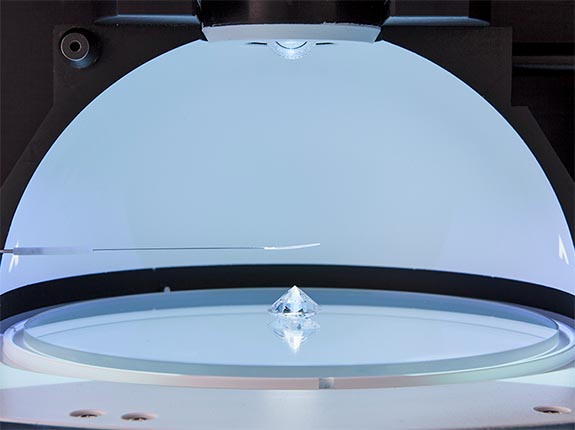Israeli high-tech company Sarine Technologies unveiled a revolutionary device that automatically grades the color and clarity of polished diamonds.

The Ramat Gan-based company believes the new system will fundamentally change the grading and sorting process, bringing objective, measurable standards to a process that has been susceptible to human error and the subjectivity of appraisers.
"Once again, Sarine introduces groundbreaking technological innovation into the global diamond industry," said Sarine CEO Uzi Levami in a statement. "Technological standardization translates into greater credibility for the industry and increased trust for the diamond consumer."

Sarine claims that the new Sarine Clarity™ product will offer definitive, science-based clarity grading and accurate mapping of inclusions and flaws. The system can accurate analyze diamonds from 2 points to 10 carats in size.
Sarine Color™ delivers automated optic analysis of diamond color and precision grading based on global standards. The initial release of the color system can handle diamonds starting at 20 points in size. The company noted that future releases will accommodate a broader range of stone sizes, starting at 2 points.
Sarine Clarity™ and Sarine Color™ are the results of the company's $10 million annual R&D expenditures. Both products are being testing in India and are expected to be ready for commercial release in the middle of 2017.
The clarity and color components build on an existing Sarine technology, DiaMension™, which analyzes and grades a diamond's cut. Together, the three products solve the daunting challenge of quantifying the 4Cs of diamond grading — clarity, color, cut and carat weight.
One critic of Sarine's new offerings told the Associated Press that humans are superior to machines when it comes to grading a diamond because of all the tiny details that need to be analyzed.
"You need the brain of a person to identify what is more, what is better to see, what do you prefer to see," said Roland Lorie, chief executive of the International Gemological Institute. "I think it will take a long, long time for a machine to be able to replace a human being."
Credits: Images courtesy of Sarine Technologies.





No comments:
Post a Comment